
 Flash News
Flash News
E rëndë në Fier! Babai abuzon se*sualisht me vajzën e tij të mitur
Pritet zbërthimi i telefonit të gjetur në burg, Laert Haxhiu rrezikon izolimin në ‘41 biss’
24 mijë fishekë nga Shqipëria në Kretë: Si u shkatërrua rrjeti kriminal nga policia greke?
Fuste dr*gë dhe sende të paligjshme në qeli, arrestohet polici i burgut të Drenovës
Lavrov: NATO po rrezikon vetëshkatërrimin me buxhetin e ri ushtarak

By David L. Phillips
The good news is that violence did not disrupt Albania’s local elections. Tensions could have sparked deadly conflict, further staining Albania’s democratic credentials. The bad news is that elections were held at all. Prime Minister Edi Rama gratuitously rejected President Ilir Meta’s proposal to postpone elections. Not only does Rama’s inflexibility and authoritarianism undermine democracy. It also tarnishes Albania’s EU candidacy. Today Albania is a single-party state; Enver Hoxha would be proud.
Albanians overwhelmingly aspire to greater integration into Euro-Atlantic institutions. European values represent an antidote to authoritarianism. In May, the European Commission (EC) endorsed negotiations on Albania’s EU candidacy. According to the EC, Albania made significant progress on democratic standards and the rule of law.
Rama expected that the European Council would give Albania a date to start negotiations. In a surprise move, however, the EC deferred membership negotiations until October 2019. It also rebuffed North Macedonia whose candidacy is coupled with Albania.
France, Germany, and the Netherlands simply do not believe that Albania is ready for membership. Their concerns were exacerbated by Rama’s recent tantrums and threats against Meta and the opposition. The fact that Albanians went to the polls on Sunday with no choice – only candidates from Rama’s Socialist Party (SP) were running – raised serious concerns about Albania’s commitment to democratic standards.
The recent tiff between Rama and Meta was totally unnecessary. Meta acted reasonably by proposing to delay elections until October 13. He cited concerns that the local election would be “undemocratic” without the participation of the center-right opposition and called for a more transparent and inclusive electoral process.
Meta also maintained that the proposed delay would give all parties a chance to cool down and work together on resolving Albania’s problems. He urged the formation of a constitutional court to decide on the timing of the election. Without a constitutional court, there is no authoritative voice bringing the parties together around the rule of law.
Rama objected. He understood that the refusal of the Democratic and Republican parties to take part in local elections had national implications. Rama concluded, correctly, that the opposition was trying to force early parliamentary elections. The SP has been discredited by allegations of widespread government corruption, vote-rigging and Rama’s links to organized crime, including narcotics trafficking.
Though the United States and the EU endorsed dialogue, Rama doubled down on his confrontational approach. He called for Meta’s impeachment even though Meta was acting within his constitutional authority to reschedule the ballot.
There is a sub-plot to the decision by Brussels to defer a starting date for negotiations on Albania’s membership. Opponents of enlargement are wary of ultra-nationalists in their own countries who strongly oppose new members. They fear that enlargement to include countries of the Western Balkans could trigger more migration and require financing to poorer newer members. Narcotics trafficking and organized crime are also of concern.
Now Albania is in limbo. Given the antipathy towards Rama in some European capitals, there is no guarantee that Albania will get a date to start negotiations in October.
The problem is compounded by the opposition’s failure to offer a credible alternative. Boycotting elections is not a policy. It is an abrogation of the need to offer a clear alternative to the SP.
The EU candidacies of Albania and North Macedonia are linked. However, there are growing demands to “de-couple” the countries. The Dutch parliament recently voted to oppose membership talks for Albania, while giving a green light to North Macedonia.
North Macedonia’s European prospects must not be undermined by Albania’s dysfunctionality. Resolving the name issue with Greece was supposed to put North Macedonia on a fast track for both NATO and EU membership. Lack of progress could reinvigorate nationalists who oppose compromise with Greece.
Moreover, failure to resolve differences through negotiations has significant strategic implications. Delaying a decision undermines the EU’s credibility. The failure of Brussels to act also opens the door to strategic rivals in the Western Balkans such as Russia, China, and Turkey.
It would be best if Albania and North Macedonia were coupled. They should be given a date to start membership negotiations at the same time. If, however, Albania’s central CentralElection Commission certifies the results of Sunday’s local elections, Brussels may have no choice but to de-couple Albania and North Macedonia, putting Albania in the penalty box for an indefinite period.
Albania is at a fork in the road. Rama has absolute power and can act in Albania’s national interest, or pursue his narrow personal and party interests.
Rama can be remembered as an autocrat who rejected dialogue, or he can act like a statesman by urging the Central Election Commission not to certify Sunday’s vote until the Constitutional Court is formed.
By supporting Rama, the Trump administration has made a false choice between stability and democracy. Supporting democracy actually enhances stability, advancing US interests and consolidating Albania’s status as a valued member of the Euro-Atlantic alliance.
*Mr. Philips is Director of the Program on Peace-building and Rights at Columbia University’s Institute for the Study of Human Rights. He served as a Senior Adviser to the US Department of State working on the Western Balkans during the Clinton administration.
Të fundit

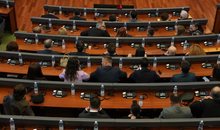
Dështon për herë të 40-të konstituimi i Kuvendit të Kosovës
1 Korrik 2025, 11:40
Kërkon pafajësinë, shtyhet për 11 korrik seanca për Vangjush Dakon
1 Korrik 2025, 11:34



BE konfirmon mbështetjen për Ballkanin Perëndimor
1 Korrik 2025, 10:50
E rëndë në Fier! Babai abuzon se*sualisht me vajzën e tij të mitur
1 Korrik 2025, 10:32
Një vit prej ndarjes nga jeta të kolosit të letrave shqipe, Ismail Kadare
1 Korrik 2025, 10:25


Furnizonin ‘spaçatorët’ me d*ogë, arrestohen dy të rinj në Tiranë
1 Korrik 2025, 09:54
“Përvëlohet” Europa, sa të rrezikshme janë temperaturat e larta?
1 Korrik 2025, 09:48
Tragjike në Angli, pema bie mbi 5 fëmijë shqiptarë, humb jetën 7-vjeçarja
1 Korrik 2025, 09:35

Nigel Farage në Shqipëri: po përse?
1 Korrik 2025, 09:13
Dosja “Partizani”, Xama: Mjaft e dobët dhe pa fakte!
1 Korrik 2025, 09:04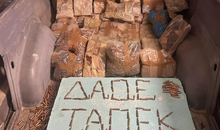

Këmbimi valutor, me sa shiten dhe blihen monedhat e huaja
1 Korrik 2025, 08:35
Fasonët paralajmërojnë sërish mbyllje fabrikash dhe shkurtime vende pune
1 Korrik 2025, 08:21
Horoskopi, çfarë kanë rezervuar yjet për ju sot
1 Korrik 2025, 08:08
I nxehtë përvëlues, temperatuat arrijnë në 40°C
1 Korrik 2025, 07:57
Posta e mëngjesit/ Me 2 rreshta: Çfarë pati rëndësi dje në Shqipëri
1 Korrik 2025, 07:42
Rinumërimi pas 11 majit, Braho: Nuk kisha pritshmëri për trafikim masiv votash
30 Qershor 2025, 22:54
Replikat Rama-Farage, Bushati: Këshillat e një politikani shqiptar s’i hyjnë në punë Anglisë
30 Qershor 2025, 22:39
Seanca e dytë për ligjin e zonave të mbrojtura, Zhupa: Antikushtetues dhe i rrezikshëm
30 Qershor 2025, 22:18
Gjyqi për 'Partizanin', ish-prokurori: 90% e seancave dështojnë për mos njoftim
30 Qershor 2025, 21:56
E përjashtuan nga Policia/ Efektivi i infiltruar: Alkool s’kam pirë, veç drogë nga puna
30 Qershor 2025, 21:53

Konflikti Izrael-Iran, Bushati: Shqiptarët duhet të jenë të shqetësuar
30 Qershor 2025, 21:32
Rrahën për vdekje të burgosurin në Burgun e Reçit, prokuroria merr të pandehur 6 gardianë!
30 Qershor 2025, 21:15
Fuga: Gazetaria në Shqipëri sot në krizë të fortë
30 Qershor 2025, 21:07
"Nuk ka vend për panik"/ Moore: Serbia nuk guxon të sulmojë Kosovën!
30 Qershor 2025, 20:49
Fuste dr*gë dhe sende të paligjshme në qeli, arrestohet polici i burgut të Drenovës
30 Qershor 2025, 20:35
Temperaturat mbi 40 gradë, Franca mbyll centralet bërthamore dhe shkollat
30 Qershor 2025, 20:28
Lavrov: NATO po rrezikon vetëshkatërrimin me buxhetin e ri ushtarak
30 Qershor 2025, 20:13
Turqia kundër “shtetit bektashi” në Shqipëri: Hiqni dorë nga kjo ide!
30 Qershor 2025, 20:03

I akuzuar për abuzim sek*ual, producenti Diddy pret sot vendimin e gjykatës
30 Qershor 2025, 19:40


"Gjyqi për dosjen Partizani i paqartë"/ Gjokutaj: Ka ndikim politik në drejtësi!
30 Qershor 2025, 19:00
Kurti e Vuçiç "përballen" nesër në Shkup
30 Qershor 2025, 18:44
Turizmi: sezon i ri, probleme të vjetra
30 Qershor 2025, 18:27
Matura Shtetërore/ Publikohen notat e provimeve të lëndës me zgjedhje, 360 maturantë ngelës
30 Qershor 2025, 18:16
Thashetheme dhe tensione me kolegët, 3 shenjat më pa fat për javën e parë të Korrikut
30 Qershor 2025, 18:10
Bie nga skelat, humb jetën punëtori i ndërtimit në Berat
30 Qershor 2025, 17:51

"Non-grata e Berishës duhet të rishikohet"/ Ish-zyrtari i lartë i SHBA: U ndëshkua pa prova!
30 Qershor 2025, 17:23

Pas murtajës një tjetër sëmundje shfaqet te bagëtitë, izolohen dy familje në Dibër
30 Qershor 2025, 16:50
Strehim gati falas: Lindja gjermane kundër shpopullimit
30 Qershor 2025, 16:43

Hamasi thotë se gati 60 persona janë vrarë në Gaza, ndërsa Trump bën thirrje për armëpushim
30 Qershor 2025, 16:14
Mbytjet tragjike në plazhe/ Eksperti Softa: Neglizhencë dhe paaftësi nga institucionet!
30 Qershor 2025, 16:00
Në 6 muaj 1260 denoncime për dhunë në familje, çdo ditë rrihen 7 gra ose burra
30 Qershor 2025, 15:57
ChatGPT ul punësimet e të rinjve, ja sektorët më të prekur në botë
30 Qershor 2025, 15:44
Portet europiane mbingarkohen për shkak të tarifave të Trump-it
30 Qershor 2025, 15:30
Prokuroria dërgon për gjykim dy zyrtarët e Bashkisë Korçë
30 Qershor 2025, 15:19
"Arrestimi im është politik"/ Meta: SPAK vegël e qeverisë! Demokracia shqiptare në rrezik
30 Qershor 2025, 15:07
Lezhë/ Policia vendos 3165 masa administrative, pranga 19 drejtuesve të mjeteve
30 Qershor 2025, 14:55
Të rinjtë lënë Shqipërinë në kërkim të një të ardhmeje më të qëndrueshme
30 Qershor 2025, 14:47
Verë me nxehtësi rekord, kërcënimet për shëndetin dhe masat parandaluese
30 Qershor 2025, 14:36

Blushi: Dënojmë procesin politik gjyqësor ndaj Berishës, farsë e turpshme
30 Qershor 2025, 14:20
Konstituimi i Kuvendit, Osmani fton në takim krerët politikë
30 Qershor 2025, 14:07

Vala e të nxehtit ‘pushton’ Evropën, Spanja regjistron temperatura deri në 46 gradë Celsius
30 Qershor 2025, 13:42
Aksident në Vlorë, makina merr përpara 2 turistë
30 Qershor 2025, 13:32

Kurti konfirmon pjesëmarrjen në darkën e sotme zyrtare në Shkup
30 Qershor 2025, 13:03

Sherr mes 4 të miturve në Kosovë, njëri prej tyre plagoset me thikë
30 Qershor 2025, 12:38
Rinumërimi/ Korreshi: Në Fier u bë masakër elektorale me patronazhistë dhe lekët e shtetit
30 Qershor 2025, 12:27
Raporti: Vajzat adoleshente, më të vetmuarat në botë
30 Qershor 2025, 12:20
Komisionarja Kos dhe udhëheqësit e Ballkanit takohen në Shkup për Planin e Rritjes
30 Qershor 2025, 12:07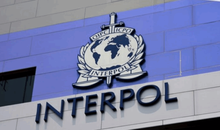
Në kërkim nga Italia, kapet në Fier anëtari i një organizate kriminale
30 Qershor 2025, 11:55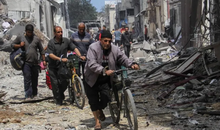
Qindra familje të zhvendosura nga vala e sulmeve ajrore izraelite në Gaza
30 Qershor 2025, 11:45

Zenel Beshi: Krimineli që as 50 dënime nuk e lëvizin nga Britania
30 Qershor 2025, 11:23
Një variant i ri i Covid do të qarkullojë gjatë verës, ja simptomat
30 Qershor 2025, 11:14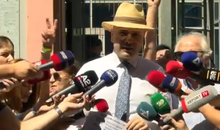

Sot nis rinumërimi i 587 kutive të Fierit, a do ta mbajë mandati Zegjineja?
30 Qershor 2025, 10:50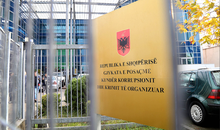
Dosja “Partizani”, shtyhet më 21 korrik seanca në Gjykatën e Posaçme
30 Qershor 2025, 10:41
Dëshira e pakontrolluar për të vjedhur, çfarë është kleptomania, pse shkaktohet
30 Qershor 2025, 10:30
Kërkoi ndryshimin e masës së sigurisë, shtyhet më 7 korrik seanca për Malltezin
30 Qershor 2025, 10:24
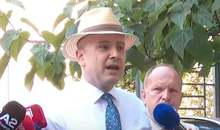

Prodhimi për orë pune në Shqipëri 35% më i ulët se mesatarja rajonale
30 Qershor 2025, 09:54

Minimatura/ Provimi i fundit, rreth 28 mijë nxënës testohen sot në Gjuhën e Huaj
30 Qershor 2025, 09:40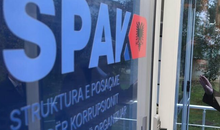
Nis sot procesi gjyqësor për dosjen “Partizani”
30 Qershor 2025, 09:27
22 vatra zjarri në 24 orët e fundit në vend, 2 ende aktive
30 Qershor 2025, 09:21
Si kontrollohen mediat? Rasti 'Rama' dhe propaganda qeveritare
30 Qershor 2025, 09:13
Kryediplomati gjerman: Putin dëshiron kapitullimin e Ukrainës
30 Qershor 2025, 09:00
Këmbimi valutor, me sa shiten dhe blihen monedhat e huaja sot
30 Qershor 2025, 08:44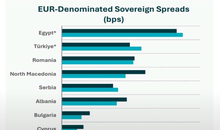
Grafiku/ Bie ndjeshëm rreziku sovran për Shqipërinë nga tregjet ndërkombëtare
30 Qershor 2025, 08:26
Horoskopi, çfarë kanë rezervuar yjet për ju
30 Qershor 2025, 08:11
Mot i kthjellët dhe vranësira kalimtare, ja parashikimi për këtë të hënë
30 Qershor 2025, 07:59
